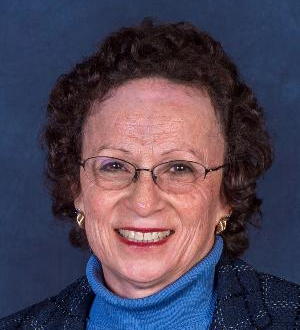A forty plus year career in engineering has given Jill Tietjen perspective, fortitude, and hope. She is now using her voice to embolden and build confidence among women working in an industry that has long been dominated by men
By Melanie Taussig
In the spring of 1976, Jill Tietjen was heading toward her college graduation from the University of Virginia, one of the first ten women to graduate with an undergraduate engineering degree. At the request of her undergraduate thesis advisor, she joined the American Society of Mechanical Engineers and submitted a paper in the student regional paper competition. She was one of ten finalists selected to present at the regional conference. Out of the ten individuals selected, Ms. Tietjen was the only woman and she was the last of the competitors to present. Just before she was to present her paper, she listened to the ninth young man present to the judges. Before finishing his presentation, that young man badmouthed UVA in what Ms. Tietjen surmises was an effort to intimidate her as she would soon be graduating from the university. When she finally got up to present her paper, Ms. Tietjen recalls, “I felt compelled to defend the honor of my alma mater but I was just terrified.” Knees shaking and gripping tightly onto the sides of the lectern, Ms. Tietjen delivered her presentation.
Her grit and persistence paid off and Ms. Tietjen placed second in the contest. As she recounts this incident on a summer day more than forty years later, Ms. Tietjen remembers that following the competition, “I decided that I was never going to be that nervous again.” It was perhaps this definitive mindset that set the tone for what has been a formidable career for Ms. Tietjen. Being “one of the few” [women] in a field dominated by men, from early on, Ms. Tietjen understood that excelling in the corporate world and climbing the corporate ladder would not be easy but nevertheless, excel she did. Over the years, Ms. Tietjen held various engineering positions, first for a power company and subsequently in big oil and then in consulting. By 1992 she was appointed as an assistant vice president for a consulting company in the Metro-Denver area. Her career path ascended and she had arrived, or so she thought.
While Ms. Tietjen was clearly doing well professionally, she witnessed and experienced a salient void; she was one of very few women in her field, a field that had always held a spellbinding quality for her. From her early days at UVA, Ms. Tietjen remembers feeling drawn to becoming an engineer and therefore witnessing an irrefutable problem in the field she felt an affinity for was dismaying. It wasn’t just the lack of women engineers that was at issue; the absence of women in the field was emblematic of a deeply embedded problem that was pervasive and systemic. Ms. Tietjen speaks about how in the engineering field, while men and women generally start their careers with parity, as time goes on, women are promoted with less frequency and have fewer opportunities to climb to the top. This is not a problem unique to engineering. Many industries see women ascend much slower than men. As a result, the ramifications of chronic professional stagnation can be acutely felt financially over a woman’s lifetime. When women are not promoted as readily, pay rates plateau and the compounding effect means lower pensions as well as smaller social security payments. Ms. Tietjen is impassioned when discussing gender equality and has cited this example as one of the reasons why it is critical for women to receive the pay they deserve.
According to Ms. Tietjen, a woman advocating for herself in the workplace or asking for a raise can be perceived as uncouth and aggressive. She would certainly know. Over a career that has spanned decades, Ms. Tietjen has faced these very issues and has found ways to navigate and circumvent the obstacles. Today she owns a consulting company and speaks regularly about encouraging more women and girls to pursue careers in STEM fields (science, technology, engineering and math). In addition to being an engineer, she is a consultant, a mentor, a board member, an author, as well as a speaker. Throughout her career Ms. Tietjen has received several professional accolades and was inducted into the Colorado Women’s Hall of Fame in 2010.
When inequality affects mental well-being
Being tasked with working twice as hard at the same job [as a man], experiencing isolation and doubt along with the pressure to perform to a standard of perfection, can impact a woman’s mental health and self-esteem. Ms. Tietjen remembers having some of those feelings as she was establishing herself as a young engineer. “I had to constantly prove myself as a woman,” says Ms. Tietjen explaining there were many times when she felt as though she was under a microscope, men constantly looking down on her. “You can’t make a mistake,” she says. “Because if you make a mistake, [that means] women aren’t any good and aren’t qualified to do the job.” Ms. Tietjen not only experienced personal pressure to prove herself but also felt a collective pressure to represent the credibility and potential of all women.
Ms. Tietjen’s found that building an alliance and camaraderie with women colleagues, though few and far between, was invaluable. In 1979, she joined the Society of Women Engineers, a professional organization that she calls ‘a godsend and a family group.’ “It saved me all the way through,” says Ms. Tietjen. It was through this organization that she met friends, allies, and found acceptance among shared experiences. “Not having to prove myself over and over, not having to explain everything all the time because there is such an understanding [among women].” It was this sense of solace that helped Ms. Tietjen to prevail professionally.
It is the notion of being “one of the only” that can lead to women feeling isolated in their respective places of employment. With many social movements backing women’s empowerment, this is a topic that has recently received its share of airtime. However, despite being the topic of frequent discussion, does not mean these issues have been rectified. Women are still subjected to gender biases, frequent underrepresentation, and experience workplace isolation. Such circumstances can have emotional and physical health detriments, problems that are often amplified for women of color and women from lower socioeconomic backgrounds.
Ms. Tietjen believes that the career path for most men is quite linear while the professional trajectory for women is not as straightforward. Women frequently find their careers disrupted by life circumstances such as having children or caring for aging parents and, they may experience professional setbacks for their personal choices and commitments. Ms. Tietjen has watched these very scenarios play out in front of her and believes the injustice that is occurring is happening for one reason: gender. “Women are promoted based on qualifications and men are promoted based on potential,” says Ms. Tietjen as she discuses the dissonance of the professional advancement for women and men.
Fervent about gender equality, Ms. Tietjen speaks regularly about the issue on an international stage, seeking to create improved career opportunities for young girls and women in STEM. She has taken to mentoring young women who are beginning careers in engineering and wants to offer a kind of support that she wishes had been available to her when she started in the field. She speaks about a “brilliant” young female engineer whom she is mentoring and says, “she doesn’t understand that she is brilliant nor think that she is capable.” Ms. Tietjen expresses disappointment knowing that this mindset is all too common in many women, who doubt their own capabilities largely because of the subliminal messaging that has permeated society. Ms. Tietjen views her mentorship as a way to counter such messages and to help boost women’s self-confidence and worth. She references the book, The Confidence Code, which she believes has a very worthwhile message, one that she embodies and shares with her mentees: “Instead of faking it till you make it, fake it until you become it.”
The past, present, and future
While Ms. Tietjen believes there is still work ahead, when she looks back, she is awed, humbled, and feels indebted to the women who have come before her and paved the way. She speaks about women’s suffrage in the U.S., which happened almost one hundred years ago, in 1920. Ms. Tietjen expresses eternal gratitude to the women who fought indefatigably for equality. “For those women to fight for women to vote at a time when they were personally regarded as property, had no right to their own wages, had no right to an education, had no right to custody of their children in the case of a divorce—how can I complain when I have the rights and privileges that I have today?” Given the many women who interminably fought with conviction for equality, Ms. Tietjen does not take the opportunities she has been afforded for granted. It is perhaps her adulation of many strong women that has inspired Ms. Tietjen to give back and create a more just world for the women who come after her.
Although she has never been impervious to issues of sexism and gender inequality, she does believe that having a thick skin has helped with some of the biases that remain omnipresent. Ms. Tietjen credits her own thick skin in part to having two brothers who teased her “mercilessly” while growing up as well as having lived through a painful family tragedy when she was in her early 20s. Ms. Tietjen yearns to see a day when women don’t have to coat themselves in mental armor in order to navigate the professional waters. She encourages increased participation of women in leadership roles and longs to see more women on corporate boards. “How can a company who makes cosmetics for women not have women on their board? What kind of sense does that make?” asks an incredulous Ms. Tietjen. “In every level of leadership, every perspective needs to be heard. That’s how you make the best decisions. If there are certain perspectives that are not heard and not considered, then you can’t make good decisions because you are missing very significant pieces of information,” she says.
Change is slowly taking place and the horizon looks bright
Ms. Tietjen acknowledges that she has enjoyed a rich and prolific career. Yet, despite all of her professional achievements, she still sees and experiences the unconscious biases that women are subjected to each day in all industries and in every part of the world. In the era of Lean In Circles, where there are resources and support systems more readily available to women in the workplace than there have been in the past, there are still roadblocks that can hinder the rise of women. “We have the perception that five feet two inch women can’t be leaders,” says Ms. Tietjen, referencing what she believes to be a universally conciliatory repertoire that subverts women. When asked how habitually engrained systems will change, Ms. Tietjen says, “you have to start talking about it.”
Talking about it is precisely what Ms. Tietjen now spends her time doing. She is a fierce proponent of encouraging more young girls to explore careers in STEM. She indicates that since the 1980’s, the percentage of women pursuing careers in engineering has remained steady; and this is a figure she would like to see increase. Ms. Tietjen attests that women have more choices now and are often choosing to embark on other prestigious and lucrative careers, such as becoming doctors or lawyers. She believes that not enough women are exposed to the possibility of careers in engineering or in technology, despite having the skills to be successful in such sectors. Her hope is that will change and more young girls will be granted opportunities to examine if their aptitudes suggest pursuing a career in the sciences.
Ms. Tietjen sees the importance of creating a unification in which women can stand together in solidarity. She strives to inculcate confidence and self-assurance into young women in order that developing generations who are entering into the workforce will break through glass ceilings. Ms. Tietjen explains this will not and cannot happen if men are not involved in these conversations and that there must be a shift in the perception of the overall system in order for equality to triumph. “We have to fix the attitudes toward the women,” says Ms. Tietjen, adamant about her beliefs. “Women are very capable.”
Over the past two years, there has been a great deal of attention on gender equality, perhaps making this a fitting moment in time to have this discussion. The world has witnessed the Women’s March, Me Too, and Time’s Up among other movements dedicated to gender equality. In addition, equal pay for men and women has been the subject of global discussion. In 2018 Iceland enacted legislation that required employers to pay men and women fairly. There has been attention regarding pay inequity among Hollywood actresses as well as elite women athletes. It was also an issue that Mark Benioff, CEO of Salesforce confronted head on at his own company. He worked to address and resolve the issue of a gender pay gap at a successful company and in doing so, brought prominent attention to the issue. Despite all of the discussion Ms. Tietjen declares, “progress has been slow.” Her statement is not said with cynicism, she believes society as a whole is slow to change. However slow as it has been, Ms. Tietjen does see progress occurring. She continues to shine a light on these issues, believing that extensive dialogue is the necessary catalyst for additional progress to take place.
Despite the lag, Ms. Tietjen has optimism for women in all professions. “The hope is that the world becomes gender blind and that everyone gets to function at their level of capability and ability and that [each person] is valued for their capability and ability,” says Ms. Tietjen, her credence in equality steadfast. “I believe the economy will be better. The culture as well as the earth will be better when women are valued.” Over the span of the past five decades Ms. Tietjen has seen people’s attitudes and perceptions develop slowly and incrementally but nevertheless, it is movement. She is confident that more progress lies ahead and feels privileged to be in a position where she is able to initiate these conversations and be an advocate for all women. “I get to do these things because I am determining the direction of my life and the things that I want to do and how I want to do them,” says Ms. Tietjen, smiling as she reflects on her past accomplishments. “To me, that means that I have arrived.”

Jill Tietjen is the Founder and CEO of Technically Speaking. She is based in Greenwood Village, Colorado.
Photo courtesy of Ms. Tietjen.
© 2019 Mental Health Missions


 by
by 

